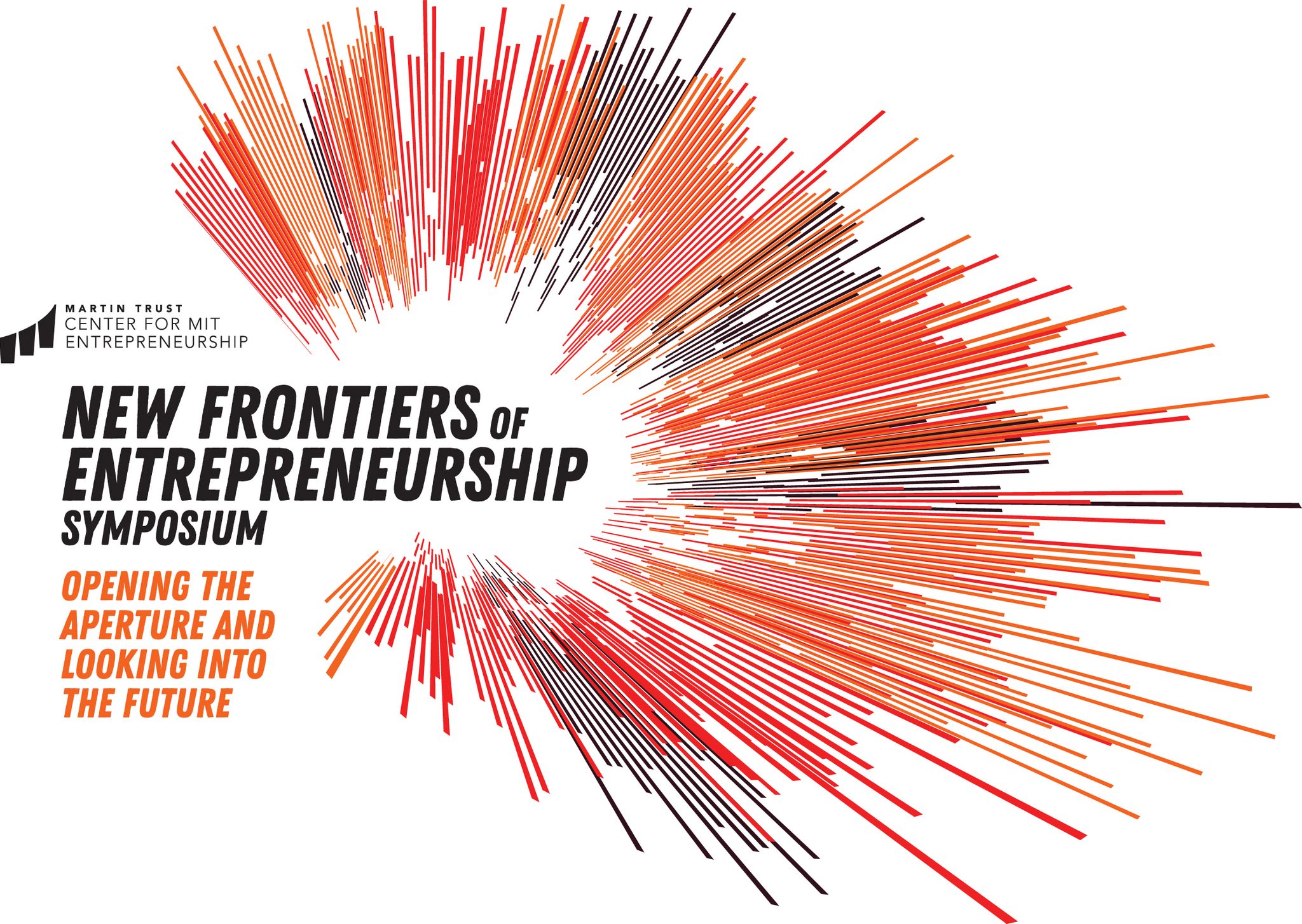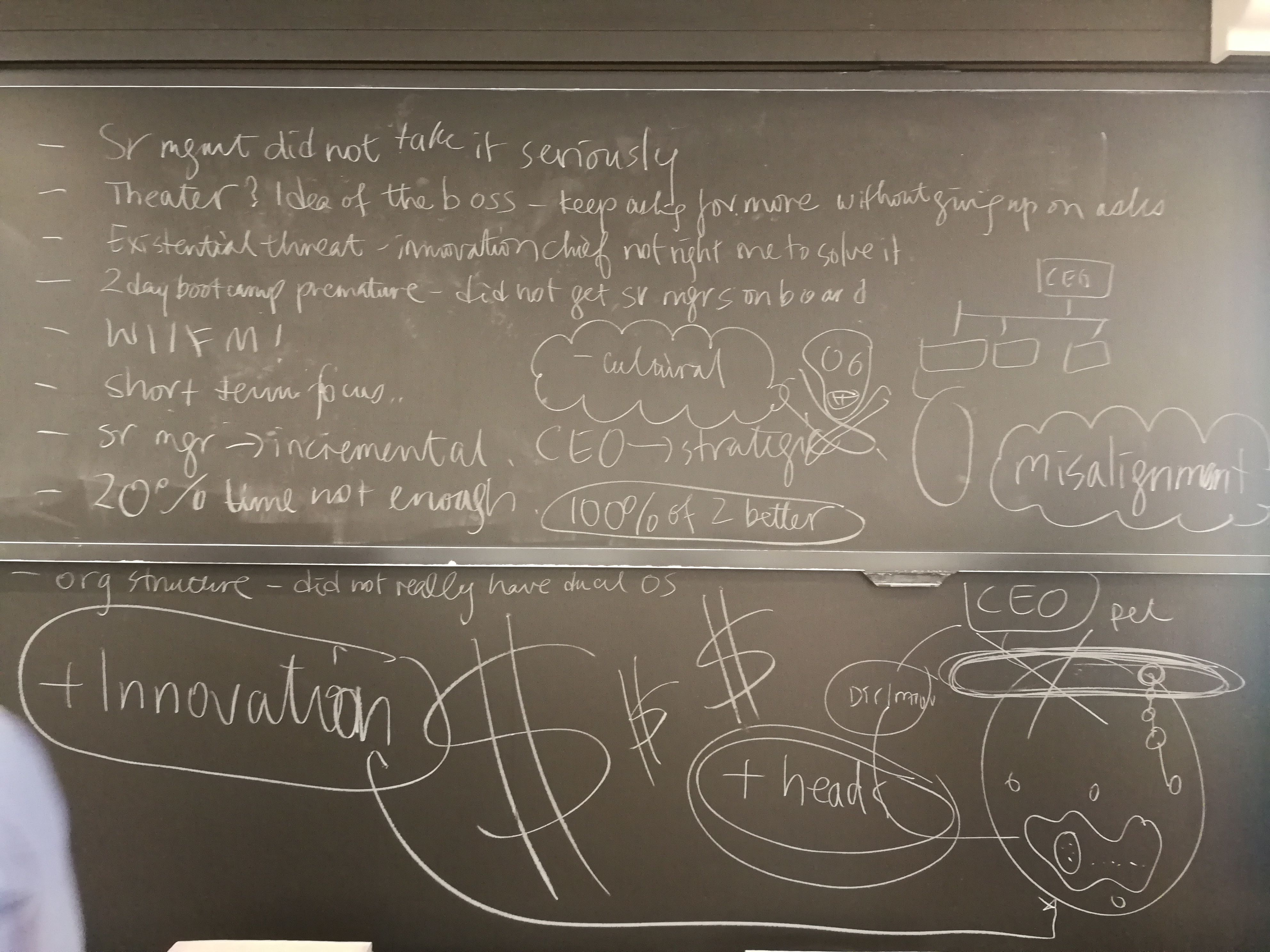Author: Martin Trust Center
Carly Chase is an Entrepreneur in Residence at the Trust Center as well as a Senior Lecturer at MIT Sloan. She is also the Managing Director of the MIT NYC Startup Studio, part of the MIT delta v accelerator. This year, Carly organized our second annual Corporate Entrepreneurship Symposium titled “New Frontiers of Entrepreneurship.” Here is her insight on how corporate entrepreneurship is supported by the Martin Trust Center and MIT.
Q: First of all, what is a corporate entrepreneur?
Carly: Corporate entrepreneurs are antifragile individuals who work inside an established organization to ensure they are able to fight against inertia by innovating, leading, growing, and ultimately promoting an entrepreneurial mindset within their company.
Many people think that entrepreneurs can’t innovate and thrive within the corporate environment, but that’s not true. We focus a lot on corporate entrepreneurship at the Trust Center because we have a lot of students who come to MIT and plan to work in the corporate world right after they leave school.
We want to encourage this form of entrepreneurship. You’re just as valuable as an entrepreneur whether you want to go and work in a huge hospital system or if you want to go found a new healthcare company.
Q: Let’s talk about the Trust Center’s expanded definition of entrepreneurship.
The way that we define entrepreneurship at the Trust Center is broad. It does not mean that an entrepreneur only equals a startup founder.
The mission of the Trust Center is to educate as many humans as possible, starting with the population at MIT. We teach students to have an entrepreneurial skill set and mind set and to go solve the huge complex problems that are rapidly getting more complex by the day. We think the world needs more entrepreneurs, in every facet of society, to do that.
If entrepreneurs were just startup founders, that wouldn’t really get us very far. When you look at the complexities of the challenges in healthcare, challenges in energy, in climate, in the pandemic that we’re all dealing with today, we need a lot of entrepreneurial talent to exist in all sorts of organizations. That’s the ultimate goal. We need the skill set of entrepreneurship, of venture building, and an antifragile mind set.
In essence, we need entrepreneurial individuals to create entrepreneurial teams, to create entrepreneurial organizations, to create an entrepreneurial society.
Q: What is the Corporate Symposium and how does that support Corporate Entrepreneurs?
We first held the symposium in 2019; its official name is “New Frontiers in Entrepreneurship.” For our inaugural event, we were able to hold the program on campus, but this year, of course, we held it virtually. On the plus side, this let us reach even more people.
If you think of the center’s overarching goal of creating a society full of entrepreneurs, the symposium is a great pathway and platform to do it. I think one of the main benefits for people who are corporate entrepreneurs is it lets them get together and learn from each other; we’ve learned there’s a ton of value in that.
The symposium also serves to solidify relationships with the organizations in our corporate membership program and provide them more exposure to MIT’s entrepreneurship community, with the ability to learn from MIT entrepreneurship experts. It also gives our students exposure to and connections into the world of corporate entrepreneurship.
The symposium came into existence for lots of reasons, but it primarily helps promote corporate entrepreneurship and helps MIT to further be a thought leader in this space. It also gives the Trust Center a reason to gather once a year all of these corporate innovators, who are all swimming upstream so to speak in their respective organizations.

Q: What did student entrepreneurs who were in the Corporate Symposium audience learn?
I think they gained a variety of things. For the MBA population, it’s a great way to network and understand the role of corporate entrepreneurs. The MBA students are at Sloan to network and meet a global population, of which our corporate members are globally diverse. We have member companies in Mexico, Australia, Germany, as well as in the U.S., so it’s definitely an opportunity to develop a network.
Second, they can gain public speaking and leadership development skills by becoming involved with our program. And third, they get to really listen to these corporate innovators and hear firsthand from a chief innovation officer or the CEO of a business and understand the challenges that are happening in the corporate environment today.
Q: Can you give an example on how an entrepreneur would thrive in a corporate environment?
One of our students who just started her MBA program comes to mind. She worked at a large bank for five years as part of the management team.
She came to the Trust Center information session the summer before she entered Sloan as a student. In exploring entrepreneurship, she realized she wants to go back into a corporate environment after finishing her MBA. She felt that she would be happiest working in a corporate position, but she wanted to make the culture better, and help build the organization in a totally different way with an entrepreneurial focus.
She realized she needed to be in the Entrepreneurship & Innovation (E+I) Track to learn different types of entrepreneurial skills, gain a unique mind set, and bring that knowledge to the corporate environment. Within this track, so many of the entrepreneurial skills taught are applicable for both startups and the corporate world.
Q: Can you talk about the Corporate Entrepreneurship class you’ll be co-teaching?
We have a Corporate Entrepreneurship course that we offer once a year. In the spring of 2021, I’ll be co-teaching that class with Bill Aulet and Sue Siegel for the first time. We’ll explore what corporations can learn from startups and how they might set up their organizations to get the best of both worlds. The course covers the practical steps that can be taken by existing organizations (including corporations, non-profits, government, and more) to become more entrepreneurial via the Disciplined Entrepreneurship framework.

Q: What question do you get asked the most about corporate entrepreneurship?
The question everybody always asks is: “How do I find the entrepreneurs in my organization? How do I find the antifragile people?”
If you think about an antifragile human the way that we define it at MIT, those are the people who don’t just play defense, they play offense as well, and not just in a time like this pandemic. To be antifragile, you must bend, but be strong enough not to break. This concept is taken from Nassim Taleb’s book Antifragile, in which he explains there is no simple word for the reverse of fragility. People with an entrepreneurial and antifragile mind set can prepare themselves and their organizations for rapid change and disruption. They get stronger in the face of adversity.
And maybe these types of people are in your company today, or maybe they’re not. If not, you may need to recruit more entrepreneurs.
You can look for people who have dealt with adversity in their lives, who have had those moments to create positives out of negatives, but it’s not going to be on their resume. It’s an attitude. It’s a quality of being ready to play in a chaotic world and make something better out of it.
So, in summary, entrepreneurs are needed today, more than ever. Their approach and attitude and skills are necessary to build entrepreneurial companies and, ultimately, an entrepreneurial society.


Follow